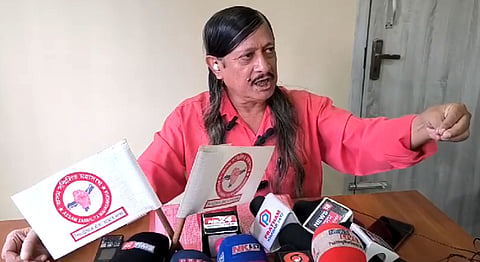
- Home
- Live Blog
- Breaking News
- Top Headlines
- Cities
- NE News
- Sentinel Media
- Sports
- Education
- Jobs

Staff Reporter
GUWAHATI: Motiur Rahman, the original petitioner who challenged the inclusion of Section 6A in the Citizenship Act, 1955, in the Supreme Court, said that he did not expect such a verdict from the apex court.
On behalf of the Axom Sanmilito Mahasangha, Rahman challenged Section 6A of the Citizenship Act in the Supreme Court. His contention was that the cut-off year for detection and deportation of illegal migrants entering Assam should be the same as the rest of the country, i.e., 1951, not 1971, as stated in the Assam Accord.
Rahman said, "I wanted the rights of the indigenous people of Assam to be fully protected, and hence we had been seeking 1951 as the cut-off year. We will study the judgement carefully and see if it can be challenged on a larger bench."
Rahman further said that the verdict of the apex court would jeopardise the future of the indigenous people of the state. He was of the opinion that nobody had the right to make Assam a dumping ground for illegal immigrants. "When viewed from this standpoint, the judgement is very unfortunate," he added.
The main contentions raised by the petitioners are: (i) Section 6A violates the essential fabric of the Constitution as provided under the Preamble, viz., fraternity, citizenship, unity, and integrity of India.
(ii) It violates fundamental rights as provided under Articles 14, 21, and 29.
(iii) It violates political rights of citizens as provided under Articles 325 and 326.
(iv) The provision is outside the ambit of legislative competence and it is contrary to the cut-off line as provided under the Constitution.
(v) The provision undermines the overarching principles of democracy, federalism, and rule of law, which are part of the basic structure of the Indian constitution.
The petitioner prayed to the apex court for the declaration that Section 6A is unconstitutional for being violative of Articles 14, 21, and 29 of the Constitution.
Also watch: